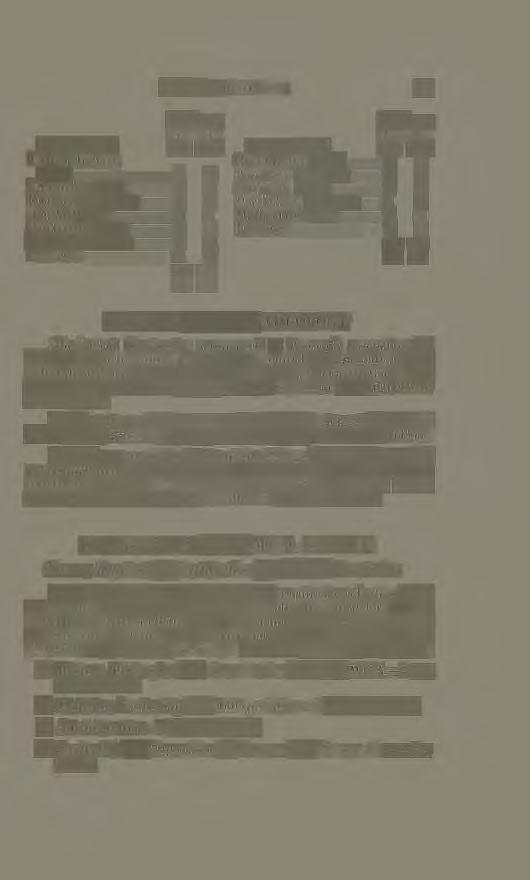
19 minute read
COURSES OF INSTRUCTION
SURVEY OF CURRICULA 61
JUNIOR YEAR Hrs. per Semester 1st 2nd
301-2 ---------- 3 Economics 201-2 _____ 3 Sociology 307, 204 ____ 3 Sociology 305 ________ 3 PBJchology 201-2 ______ 3 Field Work 403-4 ____ 1 Electives
English History
3 3 3
3 1 3
16 16 Hrs. per Semester
SENIOR YEAR 1st 2nd Government 201-2 _____ 3 3 Sociology 403, 306 ____ 3 3 Sociology 301-2 _____ 3 3 Psychology 302, 304 __
- 6 Mathematics 131 ------ 3 Electives ____ _ 6 3
18 18
PREPARATION FOR THEOLOGY
Theological Seminaries recommend a thorough grounding in the arts and humanities. The courses required for graduation from Otterbein College would be included in their recommendation& The quality of work done in college is more important than particular courses taken.
Those students who expect to take New Testament studies in Greek in the Seminary should have two years of Greek in college.
Courses are available at Otterbein College which will meet the recommendations of various needs and which will meet the recommendations of the Seminary which he expects to attend. These courses should be chosen in consultation with his adviser.
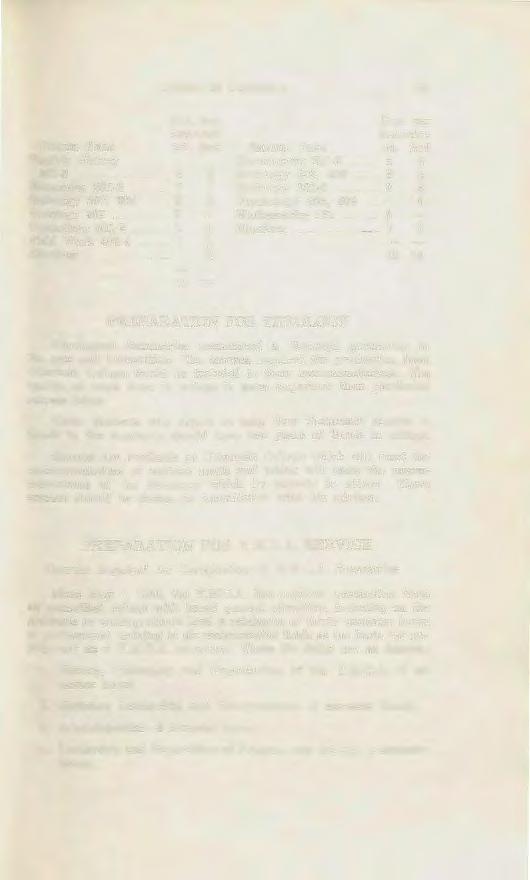
PREPARATION FOR Y.M.C.A. SERVICE
Ccnwaes Required for Certification of Y .M.C.A. Secretaries
Since May 1, 1945, the Y .M.C.A. has required graduation from an accredited college with broad general education, including on the graduate or undergraduate level a minimum of thirty semester hours of professional training in six recommended fields as the basis for employment as a Y.M.C.A. secretary. These six fields are as follows: 1. History, Philosophy and Organization of the Y.M.C.A.-3 semester hours.
2. Christian Leadership and lnterpretation-6 semester hours. 3. Administration-3 semester hours.
4. Leadership and Supervision of Program and Groupa-6 semester
hours.
62
0rrmsEIN Cou.EGE
6. Guidance of IndividuaJs----3 semester hours.
6. Community Organization and Relationahipa---8 ~istO~ Cottl'ses in P~oao~hy and Principles Organization and Methods of Group of the Y.M.C.A.; and Work~ty Orf °'!°' baSf• 8'&nization may be secured on an accredited bome-stuw Springfield College and George Williams College. reet th e Th e student should work closely with Proper courses to qualify in this field. his · adviser in order to ae
ID. PROFESSIONAL _.
OutJin
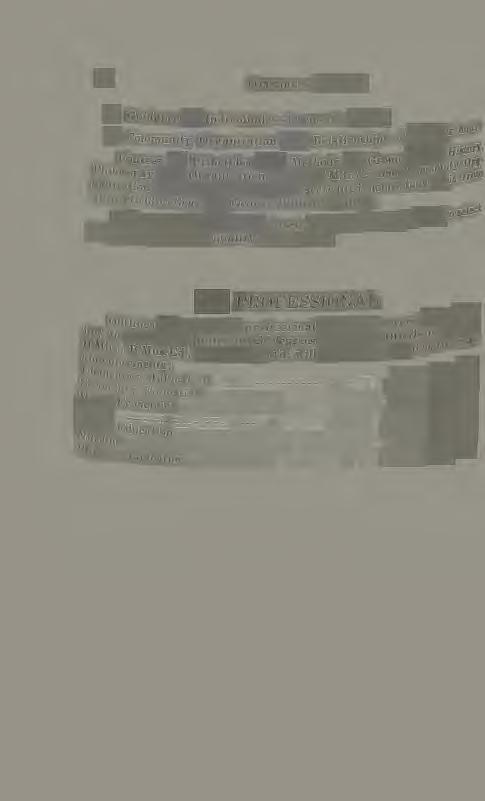
. ;fr to es of courses in professional the three professional degrees • · studies in given by ,everal fieldl 1 t,ein eone,e, Otterd partuient,I . Ua., B,Mua.Ed., llllnolUlcementa: and B.S. in Ed. will be found in the e 1J8 ::entary Education _________________ - _Jl!Je ;: 125 Ito Ddary Education ___ _____ _ _____ __.. paP 181 1rU:e Economics______________ __ _ - _ _aee page 106
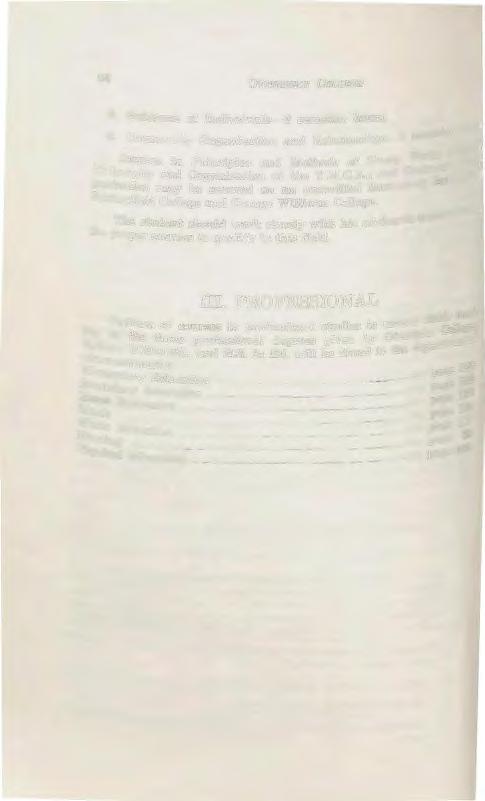
., C -• 41 Usic Educa Nu:raing · tion -------------------------- ---------___ .,.see ll'f _see page -=-.see page l!; Phhi cal Education ------- ---- __ ______ - ---- - __888 page ";.
Courses of Instruction
THE DIVISIONAL SYSTEM
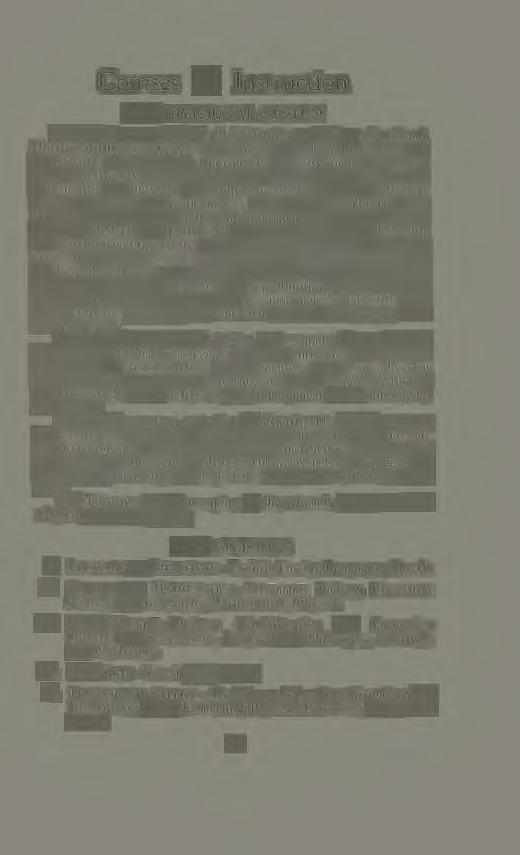
In order to secure certain administrative as well as educational advantages, Otterbein College has adopted the Divisional System for the grouping of the various departments of instruction, i.e., departments of instruction whose subject matter lies in similar fields, such as chemistry and physics, are grouped together in the same division, in this case science and mathematics. It is felt that emphasis on deP&rtments tends to create artificial distinctions, and, in extreme cases, to shut up subjects and professors alike within very narrow horizons. The divisional arrangement, on the other hand, is based on the as111Unption that it is desirable to preserve the threads of unity that run through education as a whole, and that awareness of this unity is most likely when the problems and opportunities of related subject areas are attacked on some common ground, though, naturally from several vantage points, by the concerted action of the faculty members concerned.
In the field of the social studies, for example, it may be said not only that political, economic, and social problems are so interwoven that an understanding of one requires some comprehension of the others, but also that prerequisite to this understanding is some knowledge of the religious and philosophical values underlying modern life.
Under this program, retention of deparbnents should preserve any advantages they have to offer while the divisions should provide new opportunity to free subject matter, instructors, and students alike from any limitation of deparbnental viewpoint by making use of the pooled knowledge and experience of all staff members in allied fields.
The following is the grouping of departments which has been adopted under this system.
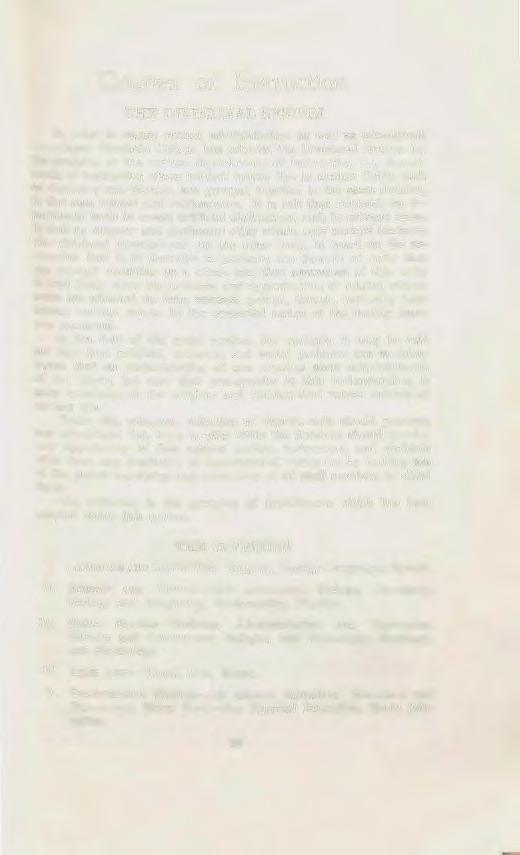
THE DIVISIONS
L LANGUAGE AND LITERATURE-English, Foreign Languages, Speech. II. Scn:NCE AND MATHEMATICS-Astronomy, Biology, Chemmtry,
Geology and Geography, Mathematics, Physics. III. SOCIAL STUDIES-Business Administration and Economics,
History and Government, Religion and Philosophy, Sociology, and Psychology. IV. FINE ABT&-Visual Arts, Music.
V. PaoFESSIONAL STUDIE&-Air Science, Education: Secondary and Elementary, Home Economics, Physical Education, Music Education.
63
64
EXPLANATION OF COURSES
In the numbering of the courses first semester eoul'NI have ocf4 numbera and second semester courses even number&
In case the subject matter ot a course is o.ffered co~tin~oual1 ~oughout the year, both the odd and even numben are ~dicatatf; With a dash between them. The number of credit boon listed fo lllch couraes is the number secured at the end ot a fuJI year'• _wor~ However, in such courses the person in charge of instruction JD th department concerned may permit entrance at midyear and =' P8nnit credit to be secured tor either semester of the year'• aeparately.
In case the same course fa ofrered either semuter or both aemes· tera, the word ,.or" aeparatea the number&
The courses in the "100" group are elementary and are deei,ned Primarily for freshmen • those in the "200" group are more advanced and are for aoph~morea; the "800'' courses are primarll:,. fot Junfora only. and aenfora; and those in the "400" group are for ,emort
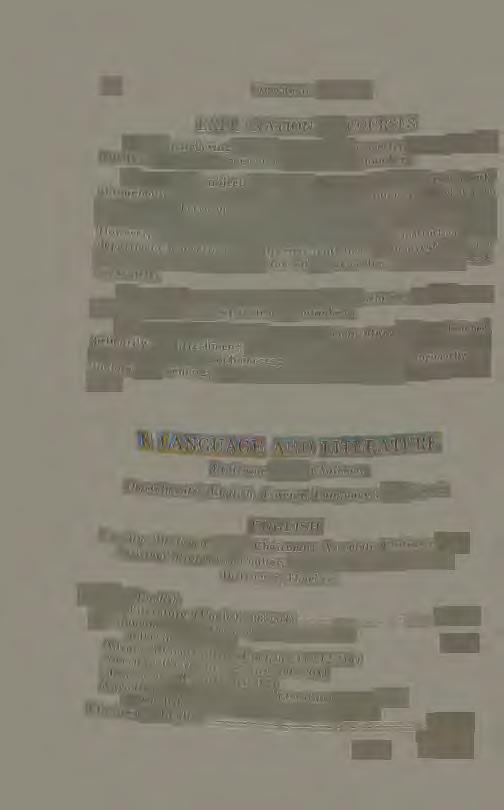
L LANGUAGE AND LITERATURE
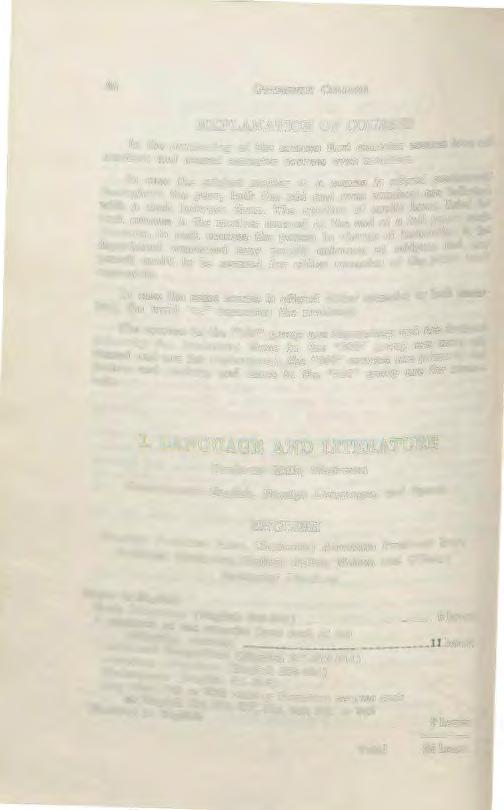
Proteuor lfiU., Chairman D~ta: English, Foreign .Languages, and Speech
ENGLISH
Fae.,l'!': hoteaor Price, Chairman; Asaociate Profeaor Ray; Aaaiatant Proteuora Coulter, Fuller, Nelson and O'Bear; Inatructor Thaekrey
II,,,;°"" ill E"llliah
Basic A rnh,:Litera tare (English 203-204) _________ 6houn ......... um ot followhic Advanced one lie.ID te es r from co11:rsea: ---·-· each ot the __________ 11 houn
Amerfean f:Poi:tfon (Engliah 211-212-214) Shakesz,eare 1 (Era 1i:e (English 808-304) Any th ng iab 811-812) 0 er 19th or 20th tu . u En lish cen ry literature courses Electi.,_ in 'big:.1 6 • 316 , 317, 818,840,841, or 342 ,111ch __ 9houn
CoURSES OF INSTRUCTION 66
Minor in English
Basic Literature (English 203-204) ________________ 6 hours
One semester from ea.ch of the following ___ _ 9 hours
American Literature (English 303-304)
Shakespeare (English 311-312)
Any other 19th or 20th century literature courses such as English 316,316,317,318,340,841, or 342.
Total 16 hours
The following courses are not acceptable to meet the requirements of a major or a minor in English: English 101-102, English 209, English 330. Minimum Requirements for CSf"tijication to Tea.ch
Candidates for the standard certificate in elementary teaching, with a degree of B. S. in Education, will take English 101-102 and English 203-204.
Candidates for a cadet certificate in elementary teaching will take English 101-102.
Candidates for certification to teach English in Grades 7-12 will take at least 24 hours of English with the following minimum distribution: English 101-102, English 203-204, English 306, and at least one semester in each of the following subjects: Advanced Composition, Shakespeare, and American Literature.


LANGUAGE AND COMPOSITION 1 or 2. REMEDIAL ENGLISH. No Credit
Special attention to diagnosis of each student's reading difficulties, to teaching reading skills for greater speed and comprehenlion, to building a vocabulary adequate for communication at the college level, and to developing the new habits and understanding necessary for the many kinds of reading and writing that he must do in adult life. Open to freshmen, and a limited number of upperclass students, on the approval of the instructor. Laboratory fee $2.00. 101-102. ENGLISH CoMPOSITION. 6 houn
Six hours of English composition are required of all students for graduation. Six hours in composition, elementary or advanced, must be completed in class by those who wish to qualify for a certificate to teach English. Release from the requirement of six hours of comPosition for graduation and permission to elect another English course in the freshman year are granted to students who demonstrate Proftciency by examination. 211. ADVANCED CoMPOSITI0N: BASIC FORMS. ! hours
Continued practice in basic forms of expository and Imaginative writing with emphasis upon the student's creative development. Not open to students with credit for English 201.
66
OTTERBEIN CoLLEGll
212. ADVANCED COMPOSinON: THE SHORT STORY. I 1,,(111 ~reative and critical writing in the .field of abort namti~ Enghsh 211 is a recommended prerequisite. Not open to students vfl Credit for English 202. Offered in alternate years.
214. ADVANCED CoHPOsmoN: POETBY. I "'11"_
Creative and critical writing in the 1ield of poetry. English ~is a recoDJmended prerequisite. Not open to students with credit I English 202. 01fered in alternate years.
205-206. JOURNALISM.
6 Mfl
History ~d ~orld. Reporting place and of the newspaper _and ma~e assignment techniques wtth m. the mod~ Pracf:i~ COD.,.. m fields of special interest. Copy-reading and head writing, _n~,a1, paper makeup, study of background and opinion colUD111& Eng,205 prerequisite to English 206.
209. ENGLISH lN BUSINESS PR.Acne&
1 '""'" Training in practical writing with emphaaia on the special requirements and techniques of business correspondence and reports-
Not accepted to meet requirements for an English major. prerequisite: 101-102. SOB. Tm: ENGLISH LANGUAG& I !u,tlfl
A stud:, of the English language: its development, •tru~ and Pl"e8ent-da:, usage. Required for certification to teach EngvJn Ohio high schools. Prerequisite: English 101-102 or equivalent.
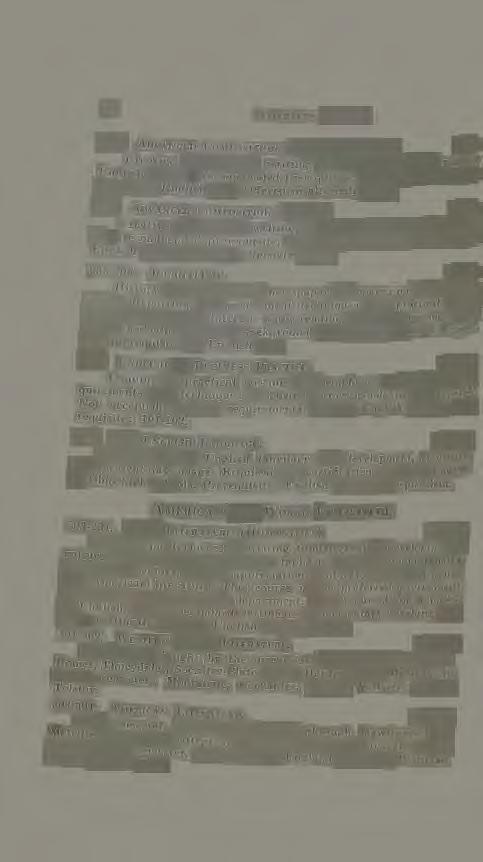
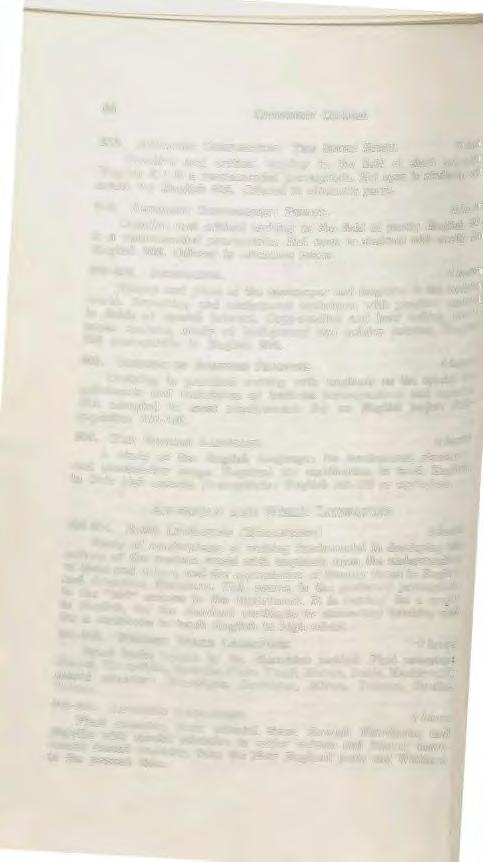
AMERICAN AND WORLD LITERATURE 208-204. BASIC LITmATVRE (HUMANITIES)
6 Arnt,f'I Stady of masterpieces of writing fundamental in developing the culture of the western world with emphasis upon the understandid of idea. and values, and the appreciation of literary forrm in Englfall and to thAmerican literature. e "300" courses in This course is the the department. It is preferred required prerequidte for a major ln English, for the standard certi.tlcate in elementary teacbift&" and for a certificate to teach English in high school. 3o1-ao2. WESTERN WORLD LJTERATUR& 1i hoxrs
Great booka taught b:, the discussion method. First semester: !!ome;, Thucydides, Socrates-Plato, Virgil, Horace, Dante, MachiaveJU; To':~y. semester: Montaigne, Cervantes, Milton, Voltaire, Goethe.
808-804. AMl!:RrCAN LJTERATUR&
~m
6 /a
~n
HeJvilJe w1:n2este~, from colonial times through Hawthorne and menta. t.o th ' e 8eeond Present SJ)ecial semeste time. attention to r, from the major writers New England and poets literary moveand Whitman
COURSF.s OF INSTRUCTION 67
311-312. SHAKESPEARE. 6 hours
First semester, a study of Shakespeare's achievement to 1600, chiefly in the comedies and chronicle history plays. Second semester, the development of Shakespeare's art and experience from 1600-1616 in the tragedies and dramatic romances.
316. THE ROMANTIC PERIOD. 8 hours
A study of the chief poets and prose writers in England from the publication of the Lyrical Ballads to the death of Scott. Offered in alternate years.
316, THE VICTORIAN AGE. 8 houra
A study of the chief poets and prose writers in England from 1832 to 1900. Offered in alternate years.
317-318. ENGLISH NOVEL. 6 hours
First semester, from Richardson to Hardy. Second semester, from Hardy to the present. Either semester may be elected. Offered in alternate years.
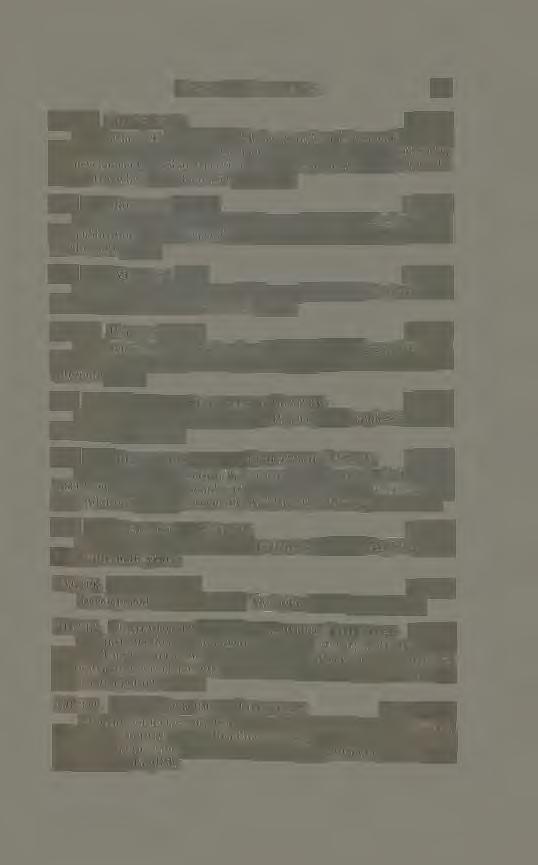
319. MILTON AND THE SEVENTEENTH CENTURY. 8 hours
Poetry and prose from Donne to Dryden, with emphasis on Milton in his epic period.

320, THE REsTORATION AND THE i!hCHIEEN1H CENl'OKY. 8 houn
A study of the English literature of the neo-classical period, 1660-1800, with special emphasis upon the great prose writers, Dryden, Addison, Steele, Mandeville, Goldsmith, Johnson, and Burke.
330. THE TEACHING OF ENGLISH. ! hours
A course in methods for those preparing to teach English. "8filera - in 'ldk!fflMe ,., ....
339-340. WORLD DRAMA. 6 hours Development of drama from Aeschylus to the present day.
341-342. CONTEMPORARY BRITISH AND AMERICAN LITERATVBE, 6 houn
An introduction to significant kinds of literary activity in the present English speaking world with some attention to the parallel or contrasting developments in the other arts and other cultures of the contemporary world.
891-392. SPECIAL PaoBLEMS IN LITERATVBE, 1 to 6 houra . Students properly qualified may arrange special research projecta m limited literary areas. Reading, writing and oral reports. Open by special permission to third and fourth year students with at least 18 hours in English.
68 0'1'TERBEIN COLLEGE
FOREIGN LANGUAGES
Faeult11: Professor Mills, Chairman; Professors Essel.styn, A. P. Rosselot, and LaVelle Rosselot (on leave 1960-61); •
Associate Professors Deever and Wilson; Assistant Professor O'Beat•
Instructors Axline and Lambert; Departmental Assistants Granget and Gutierrez. A major in Modern Languages may be taken in any one moderSI language or any combination and consists of twenty-four ?ourf, which, however, must include at least twelve hours of courses m tbt "800" group in each language included in the major. A minor c:o,1· aiating of fifteen hours must be taken entirely in one languap Courses in European history and at least an elementary lmo"_'l~ of Latin are strongly recommended to all those who major m tb modern languages. A recommendation to teach a language, whethtt as a major or as a minor BUbject, cannot be given a student unlellll he has credit for 801-802, 316, and. in French, 309.
French and Spanish tables in the college dining rooms condu~ upon BUfficient demand, by a member of the teaching staff offer wrchance for additional oral practice.
FRENCH
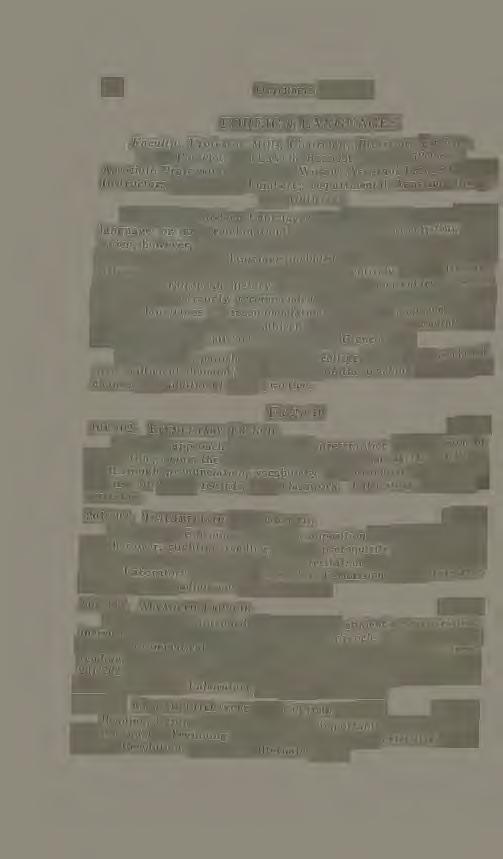
101-102. ELD!ENT.ARY FRENCH.
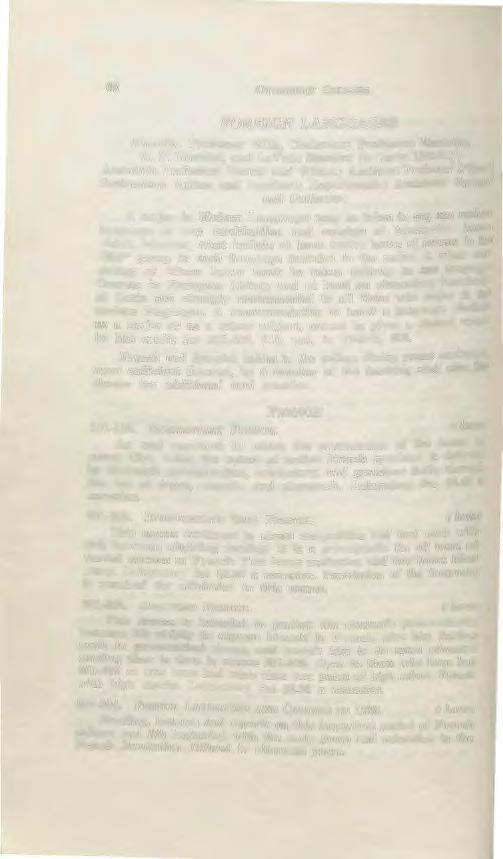
8 /,(111.rl
An oral approach in which the presentation of the leaaon hJ sound film, uaing the voices of native French speakers. ia followed by thorough pronunciation, vocabulary, and grammar drilla throaafl the use of tapes, reeord.s, and clasawork. Laboratory fee. S,6.00 ' aemester.
201-202. lNTEBMEDUTlll ()a.u. FJlENCH. 6 /wtl.rl
Thia course continues to streaa composition and oral work with• out, however, slighting reading. It Is a prerequisite for all more advanced courses m French. Two hours recitation and two hours laboratory. Laboratory fee $5.00 a semester. Permission of the instructor fa required for admfasion to thia course.
801-302. ADVANCIID FRENCH.
6 lwun . This course fa intended to perfect the student'• pronunciation, mcreaae his ability to e.xpreaa hfmeelf in French give him further work In grammatical forms, and permit him to 1 do more advanced reading than is done in course 201-202. Open to thoee who have had 2~1-2~ or who have had more than two years of high school French With high marks. Laboratory fee $2.00 a semester.
303-304. FuNcu LITERATVJts AM> CuLTUKE TO 1789. 6 hDflr-.
Reading, lectures and reporta on this important period of French culture and life beginning with the early years and extending to the French Revolution. Offered in alternat.e years.
COURSES OF INSTRUCTION 69
306-806. FRENCH LITERATURE AND Cul.TUBE FROM 1789 TO THE PJIEsENT. 6 hours
A study of the great movements of the nineteenth and twentieth centuries in the fields of literature, art and ideas, covering the romantic, realistic, and modern periods. Offered in alternate years.
307-308. MASTERS OF FRENCH LITERATURE.
6 houf'B
A general course dealing with the greatest writers of France: Racine, Moliere, Voltaire, Rousseau, Hugo, Balzac, Sartre and Camus. Reading, lectures and reports. Offered on sufficient demand.
809-310. FRENCH PlloNUNCIATION AND DICTION.
! houn
A laboratory course in French speech and phonetics designed for advanced students who wish to perfect their pronunciation. Offered for majors in the department, or for other students with the permission of the instructor. Required for a departmental recommendation to teach French. Two periods a week. Laboratory fee $2.00 a semester.
811-312. ADVANCED FRENCH READING. 4 houf'B
An advanced reading, course. No oral or composition work in French will be required. Prerequisit:AI: French 201-202. If needed, the material may be Scientific French. In this case the prerequisite is only French 101-102, but the student should be doing advanced work in his scientific field. Offered on Sllfficient demand.
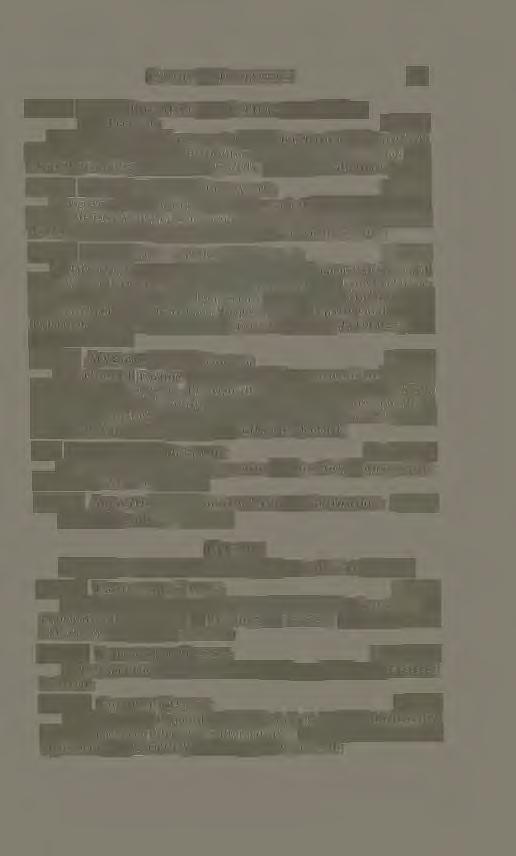
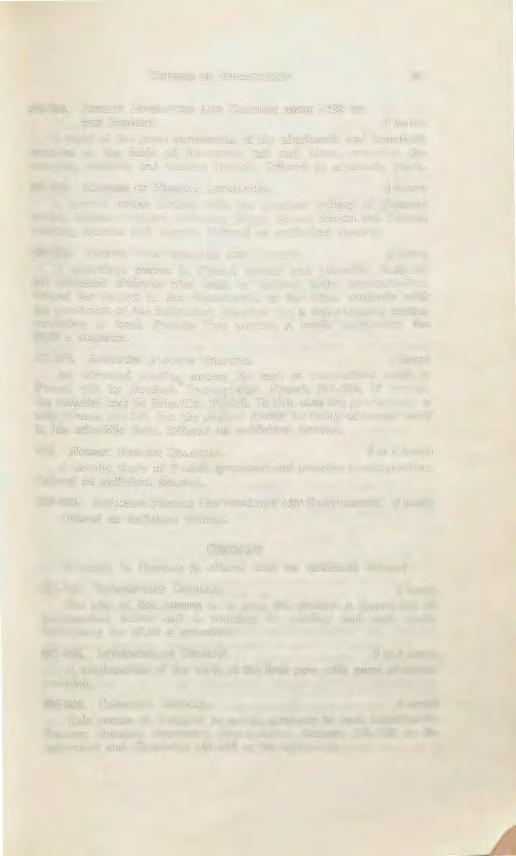
813. MODERN FRENCH GRAMMAR. ! or 8 hOUf'B
A careful study of French grammar and practice in composition. Offered on sufficient demand.
319-320. ADVANCED FRENCH CONVERSATION AND CoMPOSITION. 6 hotl.f"II
Offered on sufficient demand.
GERMAN A major in German is offered only on sufficient demand.
101-102. ELEMENTARY GERMAN. 8 houri
The aim of this course is to give the student a knowledge of grammatical forms and a training in reading and oral work. Laboratory fee $2.50 a semester.
201-202. !NTERMmIATE GERMAN. 6 toB houn
A continuation of the work of the first year with more advanced material.
205-206. CHEMICAL GERMAN. 6 houn
Thia course is designed to enable students to read intelligently German chemical literature. Prerequisite: German 101-102 or its equivalent and Chemistry 101-102 or its equivalent.
70
301-802. ADVANCED GEBIU.N.
The purpose of this course ia to give the dot practice iii eaJ'll of coll~ writing and speaking German. Prerequisite: two Yd German, or its equivalent. Offered on sutf'icient deJDS!I •
808-804. SURVEY OF GERMAN LITED.ATURE. 6 hov,a
(Mfered on
An introduction to the atudy of German IJteratur& sutficient demand.
GREEK I hoa,n
101-102. NEW TESTAMENT GREEK FOR BEGINNE&9- • d writinr
Fundamentals of grammar through intensive an are stressed. Offered in alternate years.
6hoKn 201-202. NEW TESTAMENT One of the gospels, the READING COURSE. Acts of the Apostles, an~~ th reading& ;:t alternate based on the needs of the cl888 will be read. OffeRU
years.
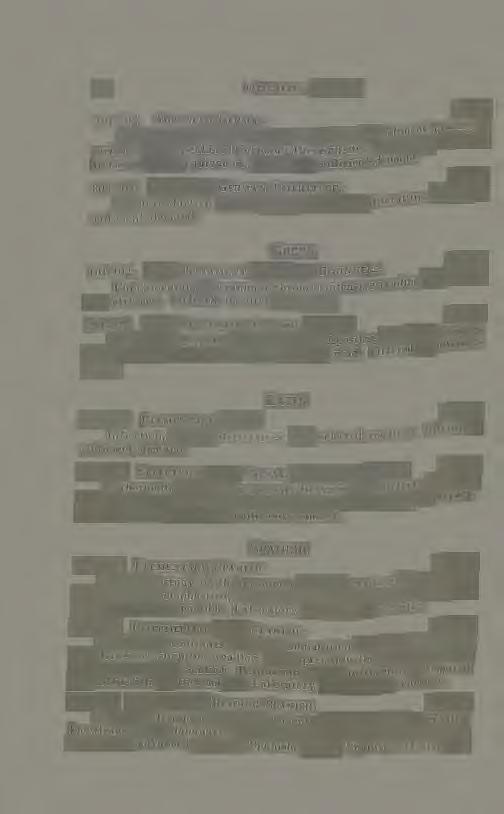
101-102. ELEMENTARY LATIN. LATIN
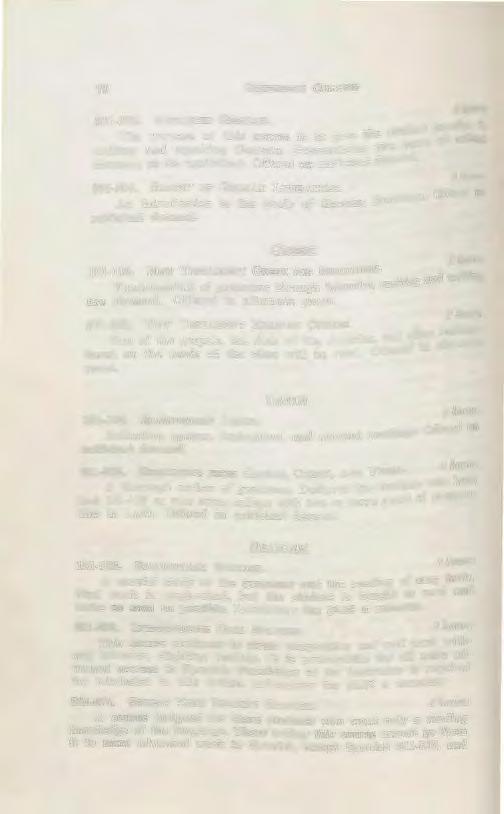
6 hOKn
. ()1fered on
Inflection, syntax, derivatives, and selected readillB& suJficient demand.
201-202. Sl:LECTIONS FROM CAJ:&a, CICERO, AND VIBGU. 6 hOKn h A thorough review of grammar. Designed for who •~ had 101-102 or who enter college with two or more years of prepa.ra tfon in Latin. Offered on sufficient demand.
SPANISH
101-102. ELEMENTARY SPA.NISH.
A careful study of the gram.mar and the reading of e&IY Oral work ia emphasized, but the atudent is taught to read and W'l'ite as 1100n as J)09Sible. Laboratory fee $2.50 a aemestel'•
201-202. INTEHKD>IATE 0Lu. SPANISH, 6 MK,.. This course continues to streu composition and oral work without, however, slighting reading. It ia prerequisite for all more advanced courses in Spanish. Permiuion of the instructor Is required for admission to this course. Laboratory fee $1.60 a semester. 203-204. SECOND YEAR READING 8PAN18H. 6 MK,..
A course designed for those students who want only a readfng knowledge of the language. Thoee taking this course cannot go from ft to more advanced work in Spanish, u:cept Spanilh Sll-312, and
CoUllSES OF INSTRUCTION 71
it does not count toward a major nor toward a teaching fteld for students in Education. Open to those who have completed one year of college or two years of high school work in Spanish. 301-302. ADVANCED SPANISH. 6 hour,
This course is intended to perfect pronunciation, increase the student's ability to express himself in Spanish, give him further work ill grammatical forms and permit him to do more advanced reading than is done in course 201-202. Laboratory fee $1.00 a aemester.
303-30,. EAJU.Y SPANISH LITERATURE. B houri
A of the literature of Old Spain with emphasis on the worka and authors of the seventeenth and eighteenth centuriea. Offe~ ed in alternate years. 305-306. LATER SPANISH LITERATURE. 6 hour,
A survey of the works of the nineteenth and twentieth centuries With an introduction to the literature of the New World. Offered on aufficient demand.
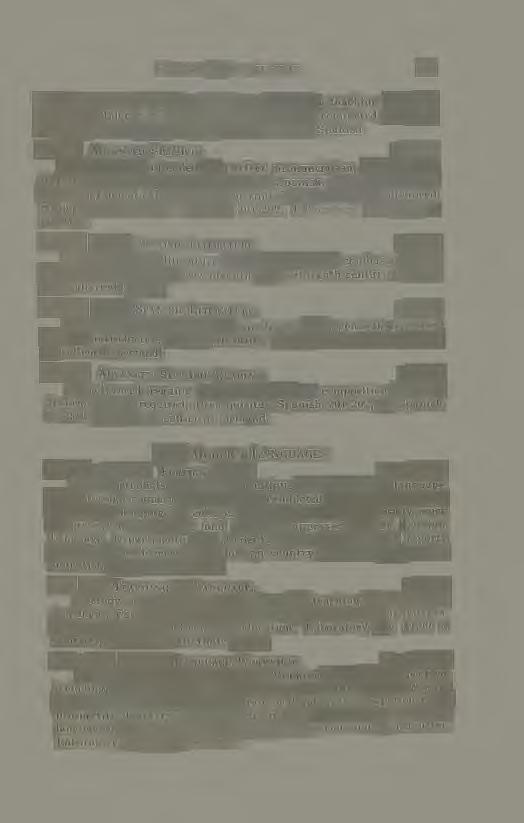
311-312. ADVANCED SPANISH 'READING. -' houn
An advanced reading course. No oral or composition work in Spaniah will be required, Prerequisite: Spanish 201-202, or Spanish 203-204. Offered on sufficient demand.

ALL MODERN LANGUAGES 261-262 or 861-352. FOBEIGN STUDY.
l to B h01'rl
Open to who wish to continue their study of a languap in the foreign country and who have completed one year or more of work In the language in college. Their plans for deftnit.e study must be presented in advance and must be approved by the Foreign Language Department. The muat make weekly during their residence in the foreign country and mmt pass an examination upon their return.
S16. Tew: TEACHING OF LANGUAGE. 8 hot&n
A of the methoda now in uae for teaching of the modem languages. For those who are to teach any of the modem languages. Credit aa 1pecial In education. Laboratory fee $1.00 a Offered in alternate years. 317 or 818. FOREIGN LANGUAGI: WORKSHOP. 1 or I hot&n
A of the life and manner of thinking of the foreign peoples, including modern life aa well folk ways. In addition to this general culture value, the course offers practical laboratory experience for proapective teachers. Open to in 202 in foreign languagea, and to those in 300 with permiaaion of inatructor. Laboratory fee $1.00 a semester.
72
891-392. SPECIAL PRoBLEMS. Hours to be arranged.
1 t.o8 hw.n
SPEECH
Facultv: Professor Grissinger, Chairman; Assistant Professors Chase, Dodrill and Thayer.
A major in Speech or in Theatre consists of twenty-seven boun including Speech 105 or 106 and at least one course above the ; 00 level in five of the following six areas: Forensics, Interpretsti~ Public Address, Radio-TV, Speech Science and Education, and Theatre.
A minor in Speech or in Theatre consists of fifteen boars in· eluding Speech 105 or 106, 201, and 813.
Certain courses in allied fields may, at the discretion of the deparbnent, count toward the Speech major or minor. These courses are English 339 or 340, and 811 or 312; Visual Aris 121.
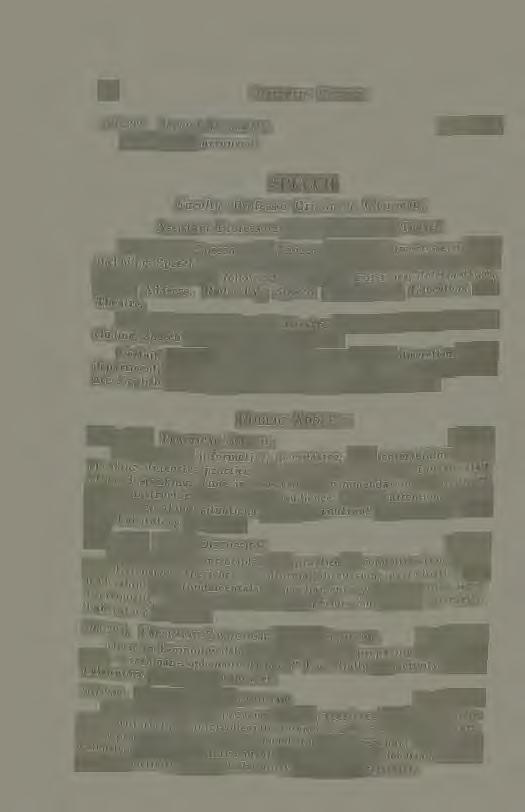
PuBLIC ADDRESS 105 or 106. PRACTICAL SPEECH. I lwMrt
A: coarse in informative, persuasive. and entertaining public 8Pe&king. Intensive practice is guided by a study of the fund~~~ of &'OOd speaking. Time is reae"ed for commendation and c1•1tid81D !:,Y the lnstrucf:<>r ~d th.e class audience. Special attention J'• thoae speaking s1tuat1ons likel7 to confront the student is given in real ue. Laboratory fee $1.00. 107 or 108. GROUP DISCUSSION. I lu1u.rs • A coarse in the principles and practiee of committee-type speak-;n«d Extensive experience in informal discussion, participation and ;8 ereh!~ The fundamentals of parliamentary law are considered. .. ~?'e(JUwte: Speech 106 or 106 or permission of the instrllctor. -boratory fee ,1.00.
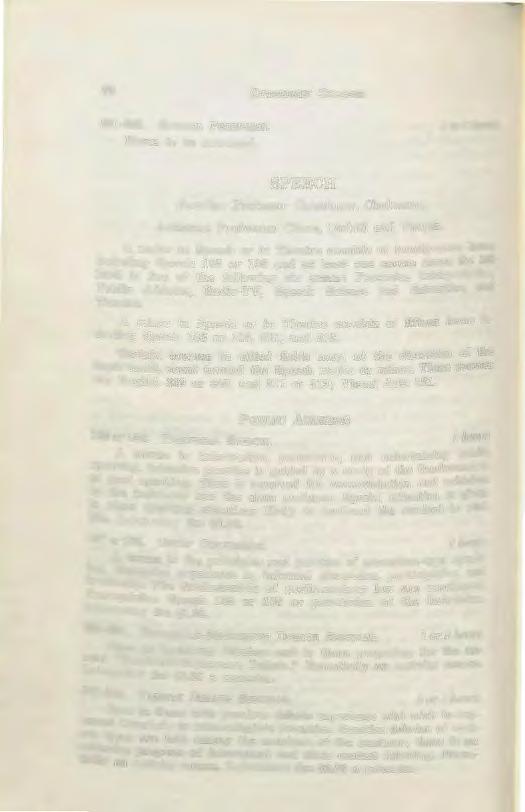
20 8-204. F'RB&RMAN-So.PHOMOB.£ DEBATE SEMINAR. 1 01' I hos&f'f n O~ to beginning debaters and to those preparing for the an-X.:~ heahmmi-Bophomore Debate." Esaentially an activity course. tory fee $1.00 a semester. 80'1-308. VARSITY DlllBA n: SEMINAL I 01" S hour, re Open to ~th previous debate experience who wish to re~ ouasez:.t Otterbem m mtercoUegiate forensics. Practice debates of van-
Y'Pea are held arnong the memben of the seminar; there is an ~ve program of intramural and state contest debating. Essen-







